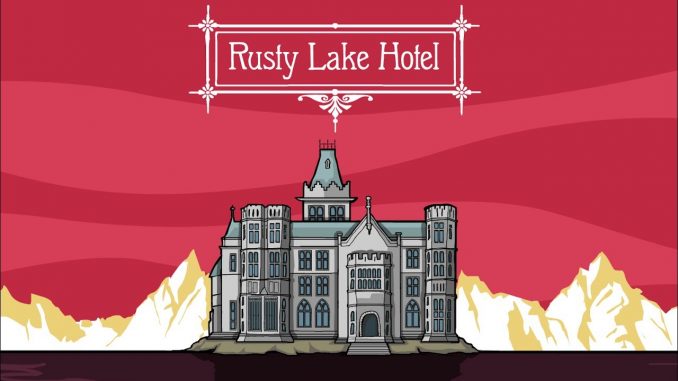

There are now thousands of room escape flash games available, and few are as admired as Rusty Lake’s.įirst debuting with the free to play puzzle game “ Samsara Room” in 2013, the Rusty Lake team has since released eight free flash games in their Cube Escape series and two longer pay-to-play games called Rusty Lake Hotel and, most recently, Rusty Lake Roots.Įntering the world of Rusty Lake, which specializes in mental health, fishing, and murder, means leaving conventional logic behind and entering into a stunning and unsettling world not unlike that nightmare you had after drinking absinthe. Semi-casual gamers, on the other hand, know that the room escape genre originated long before the live action version became popular in the late 2000s, with the earliest computer escape game being released as early as 1988. You find a shovel, it digs up dirt.These days, the majority of the world associates the “room escape” genre with tourists and coworkers spending $20-60 dollars each to pretend to be locked in a room together for an hour, solving puzzles of various complexities to get let out. In the nature of the room escape genre-from which Rusty Lake draws most of its DNA-puzzles are of the “Square Peg Square Hole” variety. In her nose blood.Īs with Rusty Lake Hotel, the standard (and rather simple) adventure game puzzles are augmented here by a dash of the odd. Or perhaps you offer a rose to your belle and when her nose starts bleeding you take the opportunity to write her a wedding proposal. It’s a game where you poison a man, flick his nipple until it falls off, shrink, crawl inside his chest cavity, remove his heart, and then crawl back out his mouth-all rendered in the same Saturday morning cartoon fashion, of course. By the end you’re likely to have some idea of what happened, some surface-level take on the fate of the Vanderbooms, but Rusty Lake: Roots is in part about just enjoying the ride, asking “What the hell was that?” and then filing it away for quiet contemplation later. Not that you’re likely to uncover that method immediately, if at all. And then there’s a whole deeper layer of Rusty Lake weirdness, drawing on symbolism from earlier games and generally reminding you that, yes, there’s some method to the madness here. Roots includes stories of love and marriage, stories of betrayal, stories of war and redemption, many containing some sort of morbid twist. It’s impressive in scope, especially coming so soon after the comparatively restrained Rusty Lake Hotel. Casting about for a rough analogue, I’d compare it to the grim trilogy of Family Tree albums by Radical Face. This ain’t no happy family reunion, though. Following a single family (the Vanderbooms) across three generations and half a century, the story is broken up into 33 individual vignettes arranged on a pseudo-family tree. The result is Rusty Lake: Roots, an altogether more sprawling adventure than its predecessor. So when I found out the developers had already wrapped up a sequel for October? Yeah, I was excited. “Strange” doesn’t come close to covering it, but I was suitably hooked. Oh, except you’re the murderer, the guests are all animals, and every time you kill one off (always in bizarre fashion) the other guests eat the corpse.

The mundane nature of Rusty Lake Hotel’s puzzles sat in stark contrast to its grim undertones, a darkly humorous story about guests being killed off at a Victorian Era hotel.

And what I got was one of the best adventure games of 2016. Earlier this year I was browsing Steam’s new releases, loved the art (weirdly reminiscent of a cartoon American Gothic), grabbed it, forgot about it for a few months, and then booted it up one night on a whim. Rusty Lake Hotel is one of those rare games I played completely at random.


 0 kommentar(er)
0 kommentar(er)
